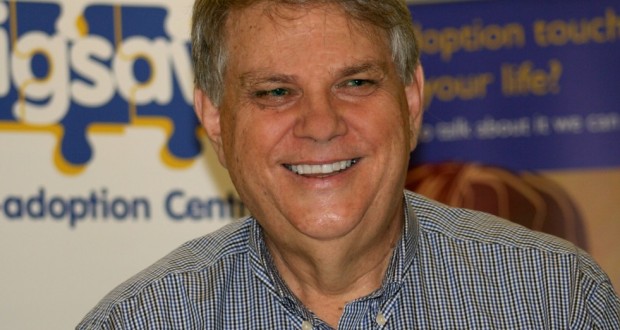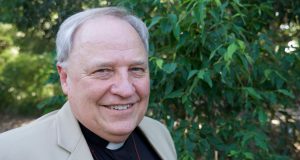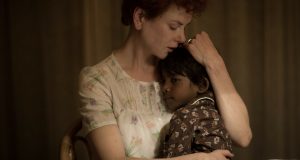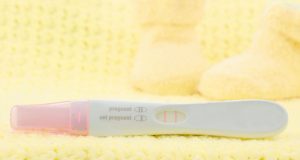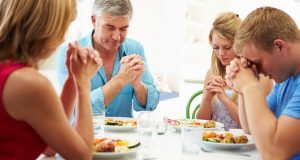Jigsaw Queensland President Dr Trevor Jordan knows from experience that secrecy casts a long shadow. Dianne Jensen reports.
Now semi-retired from his role as an academic and consultant in professional and public ethics, Dr Trevor Jordan devotes much of his time to the Queensland branch of Jigsaw, the volunteer organisation providing a range of services to those affected by adoption.
He and his wife will celebrate their 40th wedding anniversary next year. Together they have three adult sons and their first grandchild.
The news that Trevor and his brother were adopted was revealed by his father following the death of his mother in 1978, when Trevor was nearly 24 years old.
Years later, when he became involved in adoption advocacy, Trevor found the words to describe his childhood intuition that he was a stranger in his own family.
“Psychologists tell us that there’s this thing called ‘mirror loss’, where you look in the mirror and you don’t see in your reflection either your parents or your uncles and aunts or your brothers and your sisters. You are actually looking at a unique individual who is not reflected in any other person in your immediate or extended family.”
While the news shook him, there was little that Trevor could do with the revelation about his origins. Adoption reform was beginning, but information could only be accessed if both birth parents and adopted children were on the voluntary Jigsaw contact register.
“Eventually the laws changed and you could get non-identifying information, and then you could get identifying information, and of course we successfully lobbied and now everyone has a right to their information,” says Trevor. “My first non-identifying information was that I had nine other brothers and sisters, and that my mother had never married. That certainly threw me a bit!”
Winds of change
Trevor and his wife were new parents, members of the House of Freedom Christian community in Brisbane and deeply involved in the radical Christian political movement emerging from the 1960s.
His early years at Graceville Methodist (now Uniting) Church had nurtured a practical, personal faith with a strong social dimension. And as the Vietnam War became increasingly unpopular and anti-conscription sentiment grew, Trevor and other Christian students began calling for a Christian social critique which would embrace non-violence.
“The emphasis then was on the radical Jesus, that there is a Christian counterculture, and that being a Christian was not about pulling a holy shroud over capitalism or the status quo but something different to the culture and the values of the day.”
He became part of the new coffee shop movement springing up in cities across Australia.
“That’s how I got involved in the House of Freedom, because they were running social and political forums as well as the traditional coffee house thing where you did music. In fact that’s where I met the person who became my wife.”
The couple became members of one of the first shared Christian communities set up by the House of Freedom. He and his wife went even further, joining with like-minded Christians to live in a common purse community where they shared income and decisions about their lives. The group endured for more than a decade, during which time the Jordans had their own young family.
Trevor pursued postgraduate study in arts and divinity, doing his PhD on non-violence. He also worked as an educator, team trainer and political organiser at House of Freedom, and later as an academic teaching the new Applied Ethics subject at Queensland University of Technology (QUT).
The experience of teaching ethics to police in the post-Fitzgerald Inquiry era, later including a range of healthcare and social services practitioners, was enlivening, he recalls.
“People tend to think of ethics as personal but forget that there is a social ethics dimension. Applied ethics is about applying principles to our public role. It’s also about relationships and how to maintain them to be mutually beneficial. It’s about identity, who we are and the kind of person we want to be. It’s the ethics you acquire because you put your hand up to be a doctor or a nurse or police officer.”
Ties that bind us
Trevor’s journey took a new turn about 15 years ago, when one of his birth sisters contacted him.
“I then met a couple of my sisters and eventually we found out that we had missed meeting our mother by two years. I’ve since met most of my brothers and sisters.”
Not only did he discover new siblings, he found a network of extended relationships and a connection to his birth mother’s family history. Information about his birth father has not been released.
He understands the anxiety and fear behind his mother’s refusal to tell him that he was adopted.
“I have two sets of parents, some I grew up with and some I never knew, and I acknowledge and respect them. They are all my mothers and my fathers and they did things for whatever reason they felt they had to.”
Trevor’s professional and personal interests came together when he was asked to speak about the ethics of adoption at a national conference in 1997. He joined Jigsaw and became an advocate for adoption reform and the right of people to have full access to information about their family of origin.
Inter-country adoption, single parent and same-sex families, and evolving reproductive technologies are creating new policy challenges, says Trevor.
“My bottom line message is that the way to do these things ethically is to never cut off the possibility of knowledge for people about where they came from and to whom they are related biologically … the basic principles are truth and openness and honesty.”
Bringing together people without biological links to form family is not only possible, it’s part of ordinary life, he adds. “After all, marriage is defined by two people who aren’t biologically related learning to live together and create a family. It’s the same with families; biology isn’t necessary to make a lifelong commitment but it’s not natural and it does require commitment. People romanticise the role of love. It’s really about commitment.”
To find out more about Jigsaw visit jigsawqueensland.com or call 07 3358 6666.
 JourneyOnline
JourneyOnline
